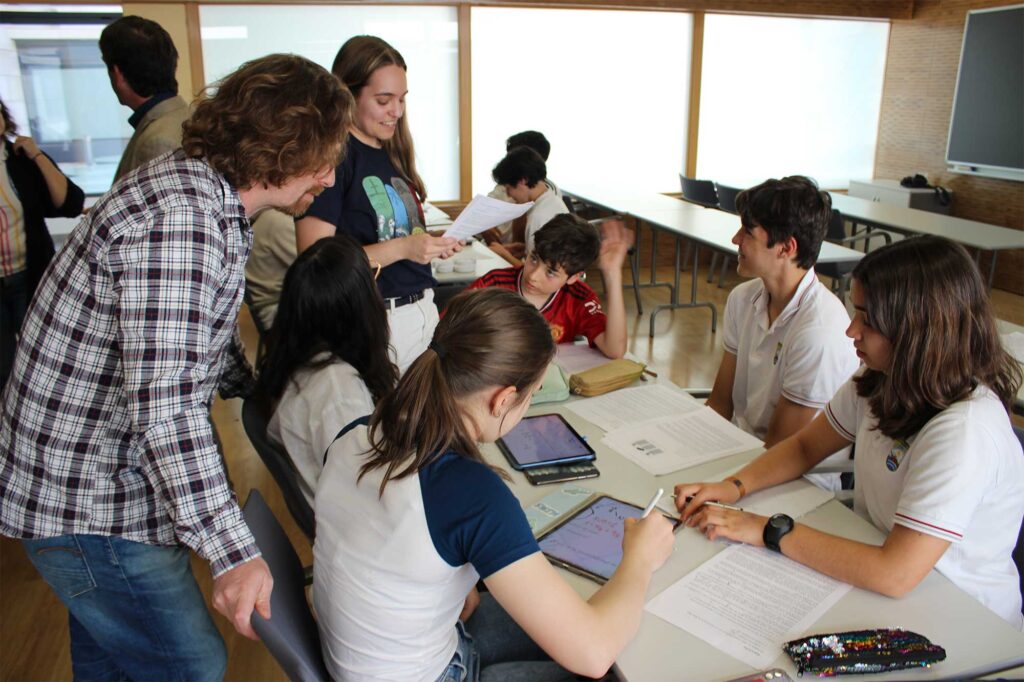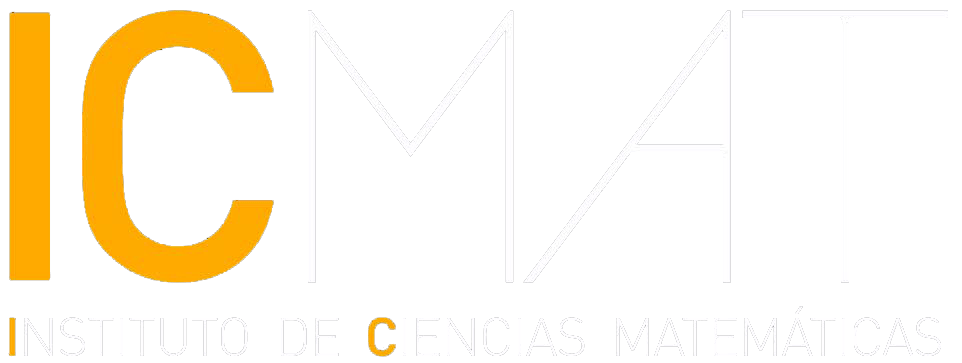Every Friday during the school year, ICMAT becomes the meeting point for more than 150 young people aged between 12 and 18 from the Community of Madrid interested in mathematics. The third edition of the Little Institute of Mathematics (PIM), which began on Friday, 20 September, with more participants than ever, will bring students closer to original and challenging mathematics. To do this, they work in groups to solve complex problems, following the model of mathematical circles, with the help of professionals in mathematical research. ‘We want to inspire the next generation of creative minds passionate about mathematics,’ say the organisers.
Laura Moreno Iraola (ICMAT-CSIC)

PIM classes are organized so that students work collaboratively on complex problems. Image: Laura M. Iraola (ICMAT)
The ICMAT’s Little Maths Institute (PIM) has already launched the third edition of the programme. From 20 September, more than 150 young people aged between 12 and 18 from the Community of Madrid will once again meet every Friday afternoon to enjoy and learn mathematics in a totally different way to the usual. ‘These are not standard problems, but problems that require thinking. In fact, it is not assumed that you have to know how to solve our problems’, say the organisers of the activity.
Taking mathematical circles as a reference, the classes are organised in such a way that students work collaboratively on complex problems. ‘We believe that the social aspect of the activity is very important: during the classes, students have to solve problems in groups and explain their ideas to each other,’ they stress.
To this end, they are supported by a group of professors, most of whom are pre-doctoral researchers at ICMAT and the Autonomous University of Madrid. This is another of the programme’s great virtues: in the PIM, participants can interact with people who have already graduated and are starting a professional career in mathematics.
‘The questions posed in the PIM reflect the challenges that STEM professionals face in real life, showing the diverse and multifaceted nature of mathematics. By bringing this experience to students, we aim to build a solid foundation for their academic and professional future, inspiring the next generation of creative minds passionate about mathematics,’ the organisation says.
This new edition has the largest number of participants since the initiative was launched in 2022. The activity is completely free for students, and to participate, you must register and try to make problems similar to those seen in the activity. Registration is open throughout the school year.
The third edition of the PIM is funded by the Severo Ochoa programme of ICMAT and CUNEF University, as well as with the institutional collaboration of the Department of Mathematics of the Autonomous University of Madrid (UAM) and the Spanish Royal Mathematical Society (RSME).
—
This content has been automatically translated. The original text may differ slightly.
